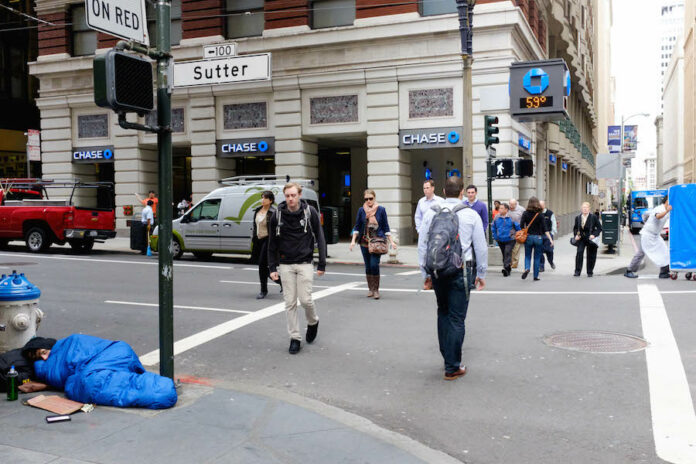![KEN WALTON [] / FLICKR](https://theaggie.org/wp-content/uploads/2017/01/expectations_op.jpg)
 How stereotypes and educational inequality tie into poverty
How stereotypes and educational inequality tie into poverty
Defining poverty is far from straightforward. The condition spans a range of complexities, from social problems to the federally determined economic poverty line. However, understanding the basics of poverty, and some of its most pertinent issues, is imperative to making a lasting difference in the lives of America’s poorest.
To summarize, individuals or families are defined as impoverished if their yearly pre-tax income falls below a certain dollar amount identified as the poverty threshold. This threshold — which is recalculated every year — is determined and reported by the U.S. Census Bureau. The poverty threshold serves a variety of purposes, including tracking poverty over time to measure the progress of antipoverty efforts, comparing poverty across different demographics and determining eligibility for federal assistance programs.
Comparing poverty levels across demographics sheds light on how poverty affects various races. Based on a 2015 U.S Census Bureau report, 24.1 percent of people below the poverty threshold are African American and 21.4 percent are Hispanic or Latino.
Concentrated poverty, in which poverty is spatially dense in specific neighborhoods and communities, is a worsening epidemic that dates back decades, and it is intrinsically connected to racial segregation. The first public housing program in the United States began as a part of the New Deal and segregated Black people from White people. The Federal Housing Administration, created in 1934, could have easily prevented segregation by enforcing a nondiscrimination policy. But it didn’t and instead, according to historian Kenneth Jackson, embodied and fueled the “racist tradition of the United States”.
This system of financial apartheid prevented Black people from receiving legitimate bank mortgages, and led to financial predation. In poverty-ridden cities like Baltimore and Chicago, African American buyers resorted to the contract system. Sellers would drive up monstrous rent prices and set financial traps so that they could repossess the home and sell it again if the buyer missed a single payment. This system was unfair, to say the least, and propelled cities such as the ones mentioned into further blight and decline.
That’s how concentrated poverty came about. Currently, poverty among Black and Hispanic communities further propels lower education levels and higher unemployment rates. But more importantly, it ingrains a stereotype about Black people in Black communities as well as the broader American society. In the education system, teachers have been found to hold lower expectations of African American students. And according to a 2013 Association for the Study of Higher Education paper, students of color reported that faculty members were often unwilling to mentor or work with them because of their race. White peers were usually reluctant to share their work with peers of color.
This negative stereotyping has profound effects on not only Black students’ psyche, but also on communities of color. As a result, Black students can easily fall into the societal stereotype of being “lazy” and “troublemakers.” On the other hand, they can take it upon themselves to counter the stereotype and not be “another Black statistic.” These students try to do well in school, study hard and refuse to accept the stereotype that places poor expectations on them.
It’s important for both insiders and outsiders of a community to reject harmful stereotypes about others and to try to recognize each person’s individuality. Kill the idea that people of a certain community need to act a certain way or have a certain level of achievement.
Instead of putting people down for defeating their stereotype, celebrate it. One of the most important implications of doing otherwise is that we leave behind some of the most brilliant and talented individuals because they simply never get a chance.
Written by: Tamanna Ahluwalia — tahluwalia@ucdavis.edu
Disclaimer: The views and opinions expressed by individual columnists belong to the columnists alone and do not necessarily indicate the views and opinions held by The California Aggie.





